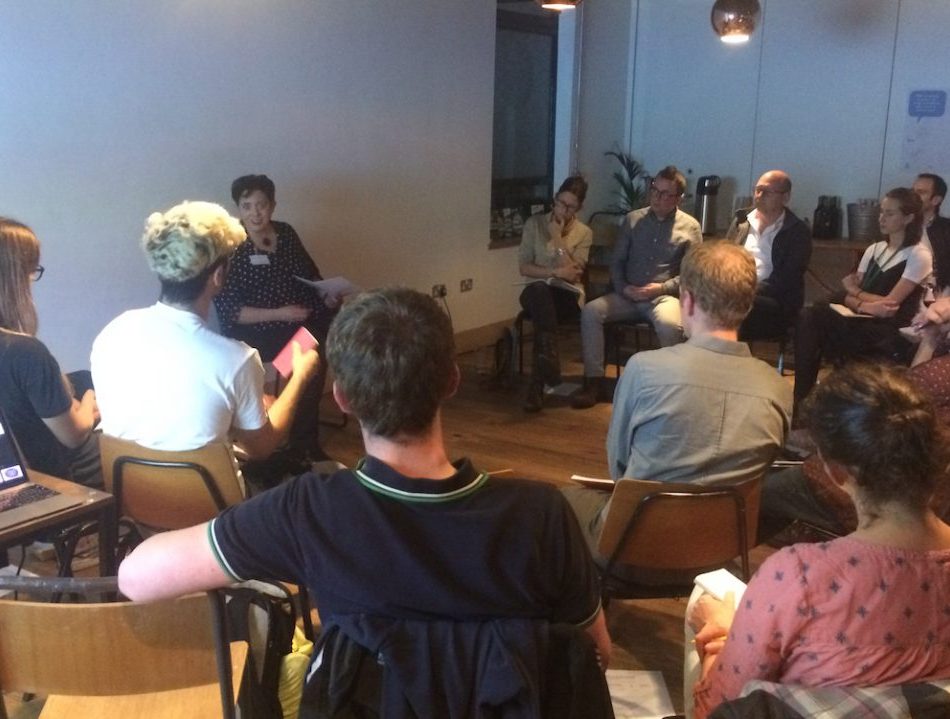Written by:
By Leo Care
Democratising Design
With its socialist political roots, it is perhaps no surprise that a conversation about great design in Sheffield should be focused on people and the social impact of design. Early on, the discussion touched on the importance of creating places and spaces that bring people together, support core human needs, and also offer delight! In this sense, design is seen as a fundamental part of life and should not be considered as an add-on or ‘nice to have’.
The question of our right to great design was discussed in terms of access; whether physical, economic or access to knowledge. Participants were also aware of their potential involvement in design processes and gaining access to decision-making about places and spaces. There was also a keen sense that our right to design is something that we need to proactively pursue; to take the initiative and responsibility for creating great urban environments.
By being involved or using our agency in the design and creation of our surroundings, we have an opportunity to question the values that underpin decisions and the potential to reshape the value structure altogether. Such an approach could have transformed the current management and felling of street trees in Sheffield, which many people feel is an example of perceived economic value taking precedence over amenity, ecology, beauty and streetscape quality.
The sense of conflict, alienation and dissatisfaction with the design and management of our surroundings can be transformed through public involvement. An ability to inform the design of, and adapt an environment, and to utilise it in specific and personal ways, fosters a sense of belonging and attachment to place.
So what is the potential for democratising design; creating socially orientated processes and outputs? There are green shoots in our region, with a number of innovative, collective custom build housing projects underway, a wiki-house pilot project, and a move towards the co-production of key parts of the city involving universities, the local authority and various interest groups.
The spirit of collaboration is still alive, alongside the importance of design (whether great or not) as a social activity. However, these innovative approaches need to become the norm rather than the exception if we are going to make places and spaces that everyone can enjoy and be proud of.
Leo Care is Co-Director of Live Works and Director of the MArch course at the University of Sheffield.
